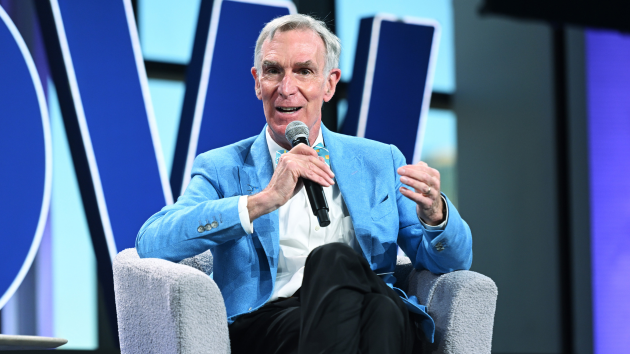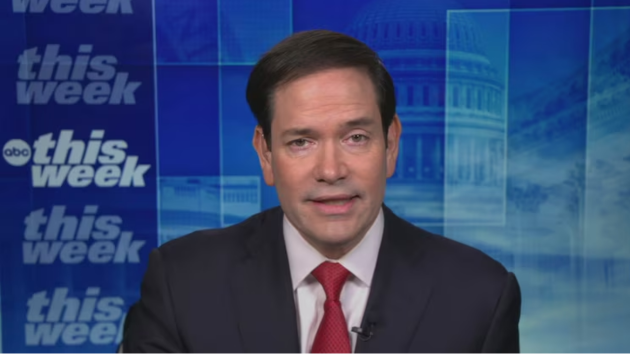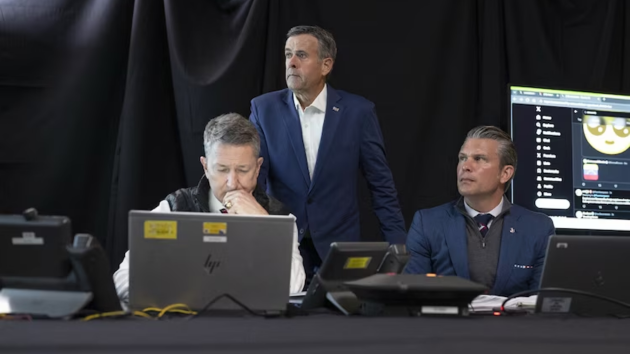Bill Nye asks Congress to push back against ‘extinction-level’ NASA budget cuts
Written by ABC Audio ALL RIGHTS RESERVED on October 6, 2025

(WASHINGTON) — One of the most well-known names in science, Bill Nye, the “Science Guy,” is pushing back on the Trump administration’s proposed NASA budget cuts.
NYE, the CEO of the Planetary Society, a nonprofit founded by Carl Sagan in 1980, joined colleagues, space advocates and legislators on Capitol Hill Monday to make a case for keeping NASA’s funding intact and the benefits of space exploration.
The Trump administration has proposed cutting NASA’s budget by approximately 24% for the 2026 fiscal year. The agency’s total budget would decrease from around $24.8 billion to $18.8 billion. Around $6 billion of the cuts would impact the agency’s planetary science, Earth science and astrophysics research funding, which all form part of NASA’s Science Mission Directorate.
“We’re not talking about delays in scientific exploration, we’re talking about the end of it,” Nye said at a press conference Monday on the steps of Capitol Hill. “While we’re checking out, our competitors are checking in,” he added.
Under the proposed budget, NASA’s science research funding would be among the hardest hit by the cuts, with a 47% cut. In a statement, The Planetary Society called this cut an “extinction-level event for space exploration.”
ABC News has reached out to multiple NASA centers for comment, but the agency is currently being affected by the government shutdown.
“Cutting NASA science in half would end several missions that are spacecraft that are already flying and several missions that are scheduled to fly,” Nye told Diane Macedo on ABC News Live on Monday. “And why this matters is if you cut it in half, cut the science budget in half, you’ll probably turn the whole thing off.”
Casey Dreier, the chief of space policy at The Planetary Society, says his organization has a simple goal: protecting existing programs.
“So, this is no new money, it’s no changes in policy, it’s just to continue these projects that we’ve already invested in, already paid for and are currently returning in fantastic science,” Dreier said.
At Monday’s press conference, Dreier explained that at this point, “Both House and Senate [are] a near-full rejection of the proposed cuts to NASA science and broadly around other areas of NASA as well.”
The Science Mission Directorate is responsible for sending satellites into space like the James Webb Space Telescope, the Perseverance Rover (the spacecraft that landed on Mars in 2021) and the Landsat 9 satellite, which work to collect vital data and “achieve scientific understanding of Earth, the solar system, and the universe.”
The White House’s proposal referred to several missions as “unaffordable.” More than 40 projects have already been flagged for defunding, including the Mars Sample Return, Mars orbiter MAVEN and the Juno mission.
“The Budget proposes termination of multiple unaffordable missions and reduces lower priority research, resulting in a leaner Science program that reflects a commitment to fiscal responsibility,” the proposal stated.
There was also a specific request within the proposal for the cancellation of climate-focused projects, as well as funding for the Office of STEM engagement.
ABC News has reached out to the Trump administration for a comment, but did not immediately hear back.
“The Budget eliminates climate-focused ‘green aviation’ spending while protecting the development of technologies with air traffic control and defense applications, producing savings,” NASA headquarters said in a statement.
Nye and Drier say they are speaking out to explain the dangers of cutting funding for NASA’s Science Mission Directorate and the National Science Foundation. Nye suggested that those cuts could ultimately have a direct impact on the United States’ position in the global race back to the moon’s surface.
“The China National Space Administration is going fast, doing a lot of extraordinary missions very similar, almost mission for mission, to what the United States is doing and I’m telling you there’s going to be a Sputnik moment when Taikonauts, China National Space Administration space travelers, are on the moon in the next five years,” Nye said.
U.S. Representative Glenn Ivey, D-Md., echoed those thoughts during the Capitol press conference.
“We’re falling behind with respect to China,” Rep. Ivey said. “They’re pushing money and engineers and scientists towards advancing science in China, competing against us, while we’re doing the exact opposite. The White House almost wants to zero out NASA science.”
More than 300 advocates joined the call to action on Capitol Hill Monday, along with 20 education, science and space partner organizations. Some of the groups represented at the press conference at the U.S. Capitol included the American Astronomical Society, the American Geophysical Union, and the American Institute of Aeronautics and Astronautics.
“Finish the job. So, both the Senate and House have bills that reject these cuts, pushing back against these cuts, but we want them to sign it into law,” Nye said.
Copyright © 2025, ABC Audio. All rights reserved.





